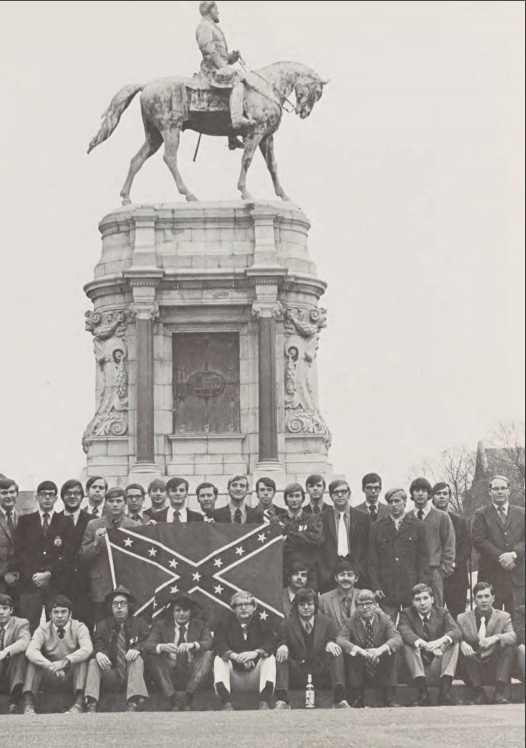by Cory Schutter
Cory Schutter is a Class of 2019 graduate from Midlothian, Virginia. He double majored in Rhetoric and Communication Studies and Women, Gender and Sexuality Studies (WGSS). He was a Bonner Scholar, a Center for Civic Engagement Ambassador, and a Student Coordinator at UR Downtown. He began his involvement with the Race & Racism Project in the summer of 2017, as an A&S Summer Fellow, then joined the team again via Digital Memory & the Archive, a course offered in Fall 2017. The post below is the written text of Cory’s speech at the 2018-2019 Lavender Graduation, sponsored by the Office of Alumni and Career Services, LGBTQ Spiders Alumni Group, and the Office of Common Ground. The event took place on April 11, 2019.

On a crisp October day 42 years ago, Anita Bryant came to the Robins Center to perform a “concert of sacred music.” The program was sponsored by the Richmond Area Baptist Associations, and did not claim a connection to any campus ministries. In protest, Richmond Citizens for Gay and Lesbian Rights organized a corresponding rally at Monroe Park, to educate and support L and G Richmonders. And a UR alum challenged her, wearing a “gay and proud” tshirt.



